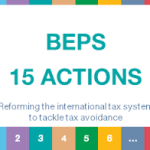
Shri. Sunil Moti Lala, Advocate, has prepared a compilation of important judgements on transfer pricing, international tax and domestic tax reported in the period from November to December 2015. The author has meticulously and systematically classified the judgements into various categories to enable ease of reference. He has also given the appeal numbers in several cases so as to enable the judgements to be retrieved from the website of the respective Court or Tribunal. A pdf copy of the digest is available for download. The digest will prove invaluable to all practitioners of taxation law
I. Transfer Pricing
a. International transactions
1. The Tribunal held that interest on delayed realization of sales proceeds from AE is not a separate international transaction but an integral part of sale made to the AE. It held that early or late realization of sale proceeds was only incidental to the transaction of sale and accordingly deleted the notional interest addition made by the TPO.
Avnet India Pvt Ltd v DCIT [IT(TP)A No.757(Bang.)/2011] – TS-629-ITAT-2015 (Bang) – TP








